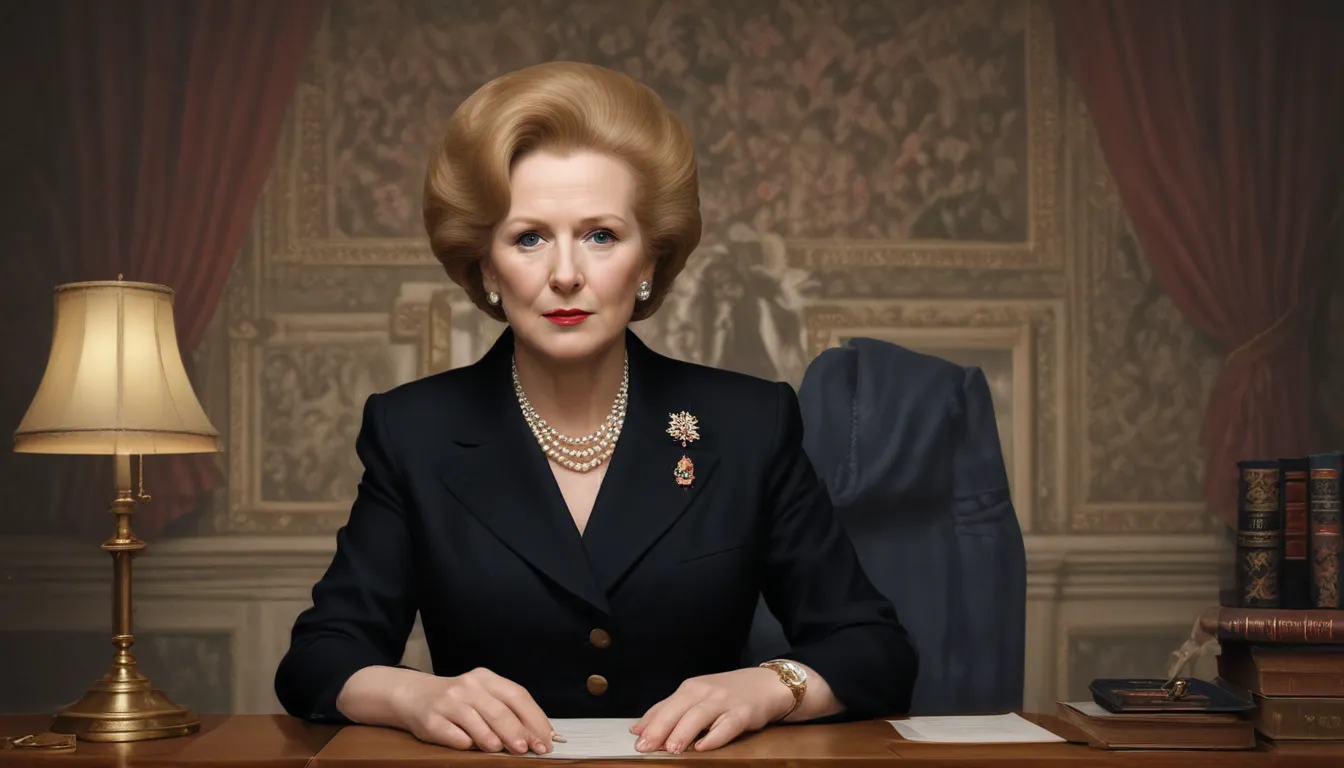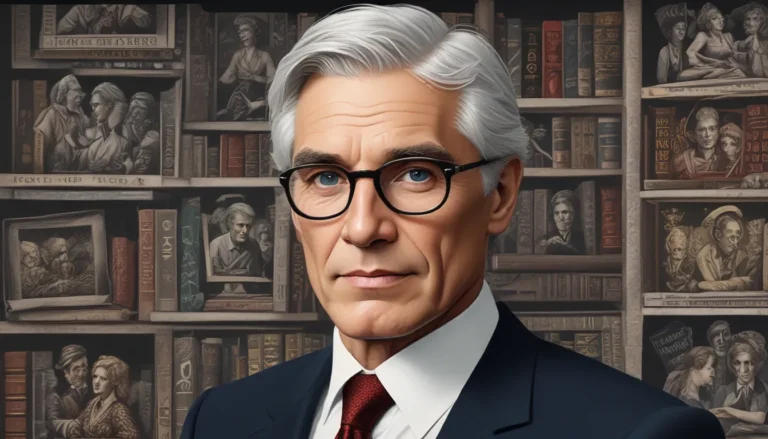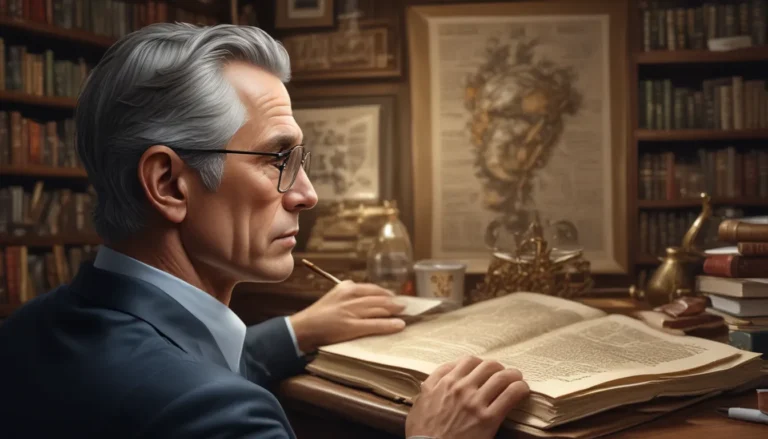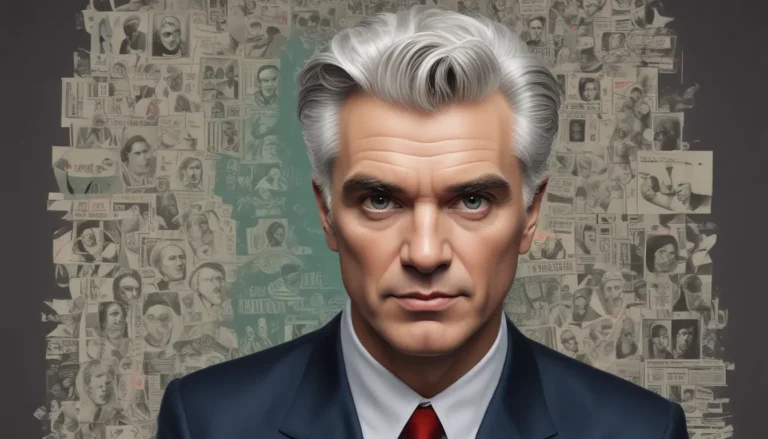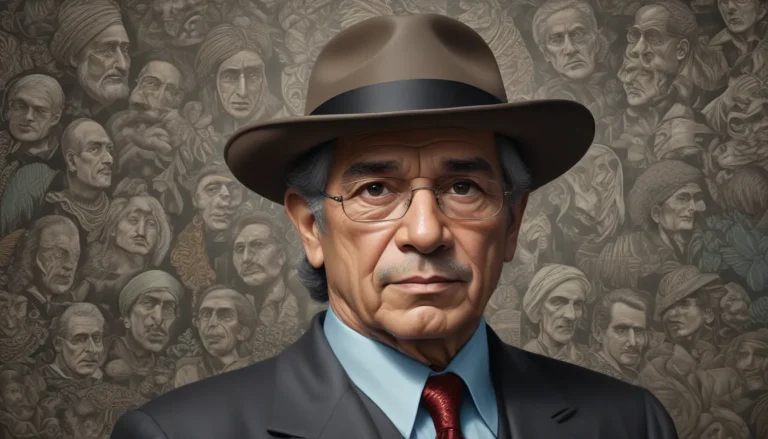The images in our articles may not match the content exactly. They are used to grab your attention, not to show the exact details in the text. The images complement the text but do not replace it.
Margaret Thatcher, famously known as the “Iron Lady,” stands as one of the most influential figures in modern political history. As the first female Prime Minister of the United Kingdom, Thatcher’s legacy spans far beyond her 11-year tenure from 1979 to 1990. Her unwavering determination, controversial policies, and global influence have left an indelible mark on British politics and society. In this article, we delve into 18 enigmatic facts about Margaret Thatcher, shedding light on her personal life, political career, and lasting impact on the world stage.
Unveiling the Iron Lady:
Born on October 13, 1925, as Margaret Hilda Roberts in Grantham, England, Thatcher exhibited early signs of her strong-willed nature and unwavering determination.
The Academic Path:
Thatcher pursued a degree in Chemistry at Somerville College, Oxford, where she honed her analytical thinking skills that would prove vital in her future political career.
A Trailblazer in Politics:
In 1979, Thatcher shattered glass ceilings by becoming Britain’s first female Prime Minister, paving the way for women in politics globally.
The Birth of “The Iron Lady”:
Thatcher’s iconic nickname, “The Iron Lady,” was coined by the Soviet press as a critique of her tough stance on communism, a label she proudly embraced.
A Legacy of Leadership:
As the longest-serving British Prime Minister of the 20th century, Thatcher’s leadership style and economic policies, known as “Thatcherism,” continue to spark debates and analyses.
Defining Moments:
Thatcher’s unwavering determination during “The Falklands War” and her survival of an assassination attempt in 1984 showcased her resolute leadership and resolve.
Controversies and Conflicts:
Thatcher’s tumultuous relationship with trade unions and her efforts to curtail their power led to fierce conflicts and criticism from labor organizations.
Global Partnerships:
Thatcher’s alliance with U.S. President Ronald Reagan reshaped global politics, with the duo sharing conservative values and opposing Soviet communism.
End of an Era:
In 1990, amid internal party divisions and declining support, Thatcher resigned as Prime Minister, marking the end of her impactful tenure.
The Baroness Legacy:
In 1992, Thatcher was made a Baroness, receiving a life peerage as Baroness Thatcher of Kesteven, further solidifying her place in British political history.
A Divisive Legacy:
Thatcher’s controversial legacy continues to divide opinions, with some praising her strong leadership and economic policies, while others criticize their social implications.
Private Battles:
In her later years, Thatcher battled dementia, eventually passing away on April 8, 2013, at the age of 87, marking the end of an era in British politics.
Beyond Borders:
Thatcher’s global influence and impact on international relations cannot be overlooked, with her strong stance against communism contributing to the end of the Cold War.
Unveiling Insights:
Her authorized biography, “The Downing Street Years,” published in 1993, offers valuable insights into Thatcher’s time in power and decision-making processes.
Global Farewell:
Thatcher’s state funeral at St. Paul’s Cathedral was attended by dignitaries from around the world, a testament to her enduring global influence.
In conclusion, Margaret Thatcher’s enigmatic journey and lasting impact on British politics and society continue to captivate and intrigue audiences worldwide. Whether admired for her determination and economic reforms or criticized for her uncompromising policies, Thatcher remains a powerful and influential figure in modern political history.
FAQs
-
Key Policies: Thatcher implemented privatization, deregulation, and tax cuts to promote free-market principles and reduce state influence.
-
Economic Impact: Thatcher’s policies led to economic growth and competitiveness but also resulted in social inequality and job losses in certain industries.
-
Foreign Policy: Known for her confrontational approach, Thatcher played a pivotal role in global affairs, including the Falklands War and alliances with world leaders.
-
Leadership Style: Thatcher’s decisive, determined, and uncompromising leadership style earned her the moniker “Iron Lady.”
-
Gender Equality: Thatcher’s rise to power as the first female Prime Minister paved the way for women in politics, despite criticisms of her gender equality initiatives.
-
Cold War Role: Thatcher’s strong stance against communism and negotiations with world leaders contributed to the end of the Cold War and reshaped international relations.
Through the exploration of Margaret Thatcher’s captivating life story and influential legacy, we gain valuable insights into the complexities of political leadership and the enduring impact of remarkable individuals like the Iron Lady.
